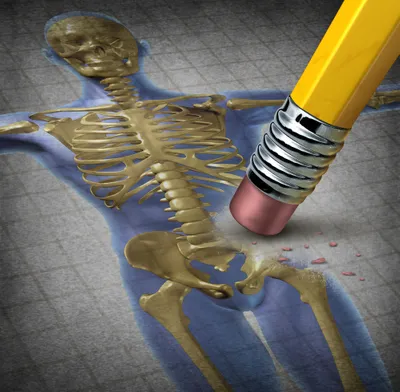Let’s cut straight to the short and tall of it—when it comes to women’s health, there are clear benefits to being both short and tall. While measuring in at under 5-foot 2-inches lowers your risk of certain cancers it vastly increases your risks of developing osteoporosis. The same goes for tall women who are less likely to develop dementia, but far more likely to get breast cancer.
Tall or short, here are six things your height can determine about your health…
1. Greater Risk of Breast Cancer for Tall Women
According to a research study from Oxford University, your breast cancer risk soars with your height. Surprisingly, researchers discovered that for every 4-inches of added height, a woman’s breast cancer risk heightens by roughly 16-percent.
Scientists speculate that the risk is closely tied to growth hormones, which have been not only tied to triggering body growth in adolescence, but also to triggering the growth of oestrogen-dependant breast cancer. The idea is that the taller a woman is—the higher her growth hormones will be. Oxford researchers found that women with heightened growth hormones were approximately 28-percent more likely to develop breast cancer, on average.
2. Short Isn’t Sweet When it Comes to Bone Loss
Bone density research out of the Cleveland Clinic, show that short (or petite) women with thin bones have a significantly increased risk of developing osteoporosis. Interestingly, the very same thing can be said for males–small-boned, petite men are more prone to bone loss compared to large-framed males.
Cleveland Clinic studies show that both bone structure and body weight play into overall strength of bones as well as the rate of bone loss. For instance small, petite women have less bone to begin with and also tend to lose bone density at faster rates than women with larger frames, of higher body weight.
3. Dementia Risk Lower in Tall Women
A study conducted by researchers at University College London, in England, say that even though being short doesn’t outright result in dementia—a short stature can predispose you to the brain disease that leads to memory and thinking issues later in life.
Senior author of the study, Dr David Batty, points out that while height doesn’t mean an automatic dementia diagnosis, women less than 5-foot, 1-inches are more prone to several factors and illnesses—such as malnutrition and psycho-social stress—that can weaken the mind and lead to a dementia diagnosis later in life.
4. Short Stature = Taller Lifespan
If you have dreams of living into your golden years, you can hedge your bets on a longer lifespan—if you happen to be short. Research from the Albert Einstein College of Medicine, part of the Yeshiva University Graduate School, in New York City, linked a particular gene responsible to longevity with individuals of short stature.
The 2006 study, sponsored by the National institute of Aging, examined the roles of certain genes in humans with exceptional longevity and their offspring and discovered several biological markers to help predetermine long life. The researchers pin-pointed a new, non-synonymous, polymorphisms gene (IGF-1) in the insulin-like growth factor in many of the short women participants. This gene linked to short stature was also able to prevent insulin-like growth factor, which lead to prolonged life span.
5. Tall Shortens Heart Disease Probability
It turns out that the taller you are—the healthier your heart will be. The study, published by the New England Journal of Medicine, takes to hear that females over 5-foot, 8-inches tall have a 28-percent lower risk of developing cardiovascular disease compared to shorter females who measure 5-foot, 3-inches tall or less.
The British study actually measures health risk according to inches in stature. For instance, for every 2 and 1/2-inch increase in height—the heart dangers fall by roughly 14-percent. Not to mention that women of lesser heights are also tied to increased LDL (bad) cholesterol levels.
6. The Short End of Cancer
Women who soar above others are far more likely to develop several types of cancer vs. shorter women. So says a research report featured in the journal, Cancer Epidemiology, Biomarkers and Prevention, which discovered a telltale link between the height of a group of 20,928 postmenopausal women study participants and their risk of developing cancer.
Researchers, who examined the health records of the women, learned that taller women were more prone to thyroid, colon, ovarian, breast, melanoma, kidney, rectal, and endometrial cancer tumors compared to shorter counterparts. The researchers recognized that with every 3.94 extra inches in height, the cancer risk increased between 13- and 29-percent!









